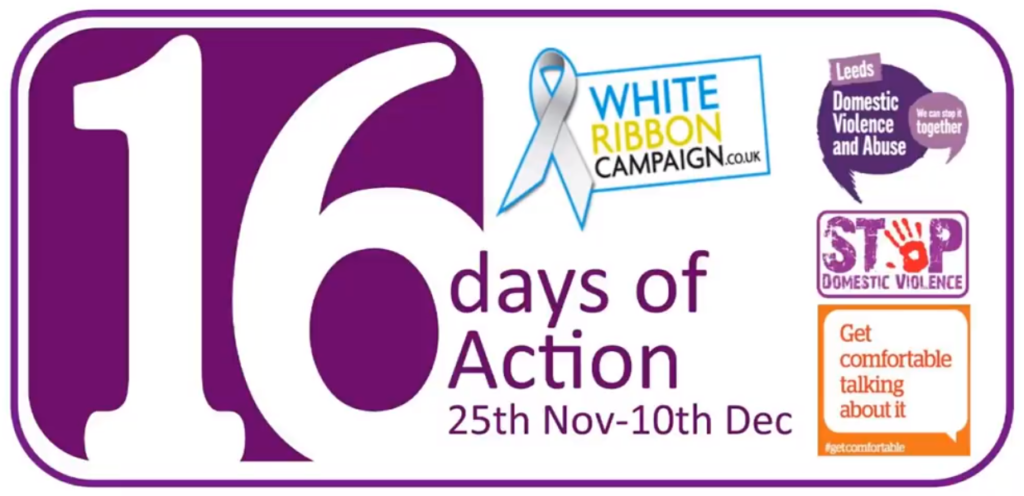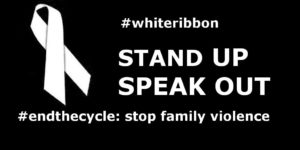
Domestic abuse can have a devastating impact, often taking place behind closed doors. It is a lot more common than many people realise and there has been a sharp rise in cases since the start of the pandemic. It may feel particularly distressing for people to read this article.
Where to get help if you are personally affected by domestic abuse and violence
If you are in immediate danger call 999.
LEEDS DOMESTIC VIOLENCE SERVICE The 24hr helpline is open to everyone – whether you want some emotional support, to refer yourself, or someone else into the service – you can ring anytime to speak to a friendly trained advisor. You can also message via the website.
24hr helpline 0113 246 0401
email: administration@leedswomensaid.org.uk
IDAS (Independent Domestic Abuse Services) is the largest specialist charity in Yorkshire supporting anyone experiencing or affected by domestic abuse or sexual violence
IDAS continue to operate helplines and refuges remain open at this time. Support is offered via online video calls, messaging services, telephone and email.
24hr helpline 0808 2000 247
email: info@idas.org.uk
Karma Nirvana Supporting victims of honour-based abuse
UK Helpline: 0800 5999 247
email: info@karmanirvana.org.uk
This article has been put together by the LYPFT Safeguarding Team and includes helpful information for professionals working with people experiencing and also instigating domestic abuse and shows our commitment as an organisation to tackling the fight against domestic violence.
The ’16 Days of Action’ Campaign started in 1991. It runs from 25th November, UN International Day of Elimination of Violence against Women to 10th December, Human Rights Day. The campaign spans these 16 Days in order to highlight the link between violence against women and human rights. Today, women and girls are subjected to many forms of human rights violations solely on the basis of their gender.
Linked to the 16 Days of Action is the White Ribbon Campaign which is the largest effort in the world  of men working to end men’s violence against women. WRC got started in 1991 when a group of men in Canada decided they had a responsibility to urge men to speak out against violence against women. They decided that wearing a white ribbon would be a symbol of men’s opposition to men’s violence against women. Wearing a white ribbon is a personal pledge never to commit, condone or remain silent about violence against women.
of men working to end men’s violence against women. WRC got started in 1991 when a group of men in Canada decided they had a responsibility to urge men to speak out against violence against women. They decided that wearing a white ribbon would be a symbol of men’s opposition to men’s violence against women. Wearing a white ribbon is a personal pledge never to commit, condone or remain silent about violence against women.
DOMESTIC ABUSE STATISTICS DURING LOCKDOWN
The local picture
Leeds Domestic Violence Service (LDVS) and the Multi-Agency Risk Assessment Conference (MARAC) have both been working at capacity since April.
Domestic Violence and Abuse: COVID ~ Service Level Volume Trends (Apr-Sep 2020)
| Source |
Total |
Week avg. |
Week max. |
Week min. |
Peak week |
| Police DVA Incidents |
12,193 |
452 |
533 |
421 |
27-Jul-20 |
| LDVS contacts |
2,623 |
97 |
130 |
60 |
11-May-20 |
| MARAC referrals |
2,000 |
74 |
88 |
55 |
27-Jul-20 |
The national picture
Since the start of the pandemic there has been a significant increase of domestic violence and abuse in countries across the world and the same is happening in England too.
Police reported receiving a call every 30 seconds about DVA during the first 7 weeks of lockdown.
The National Domestic Abuse helpline has reported a 49% increase of calls to the helpline and Refuge (UK’s largest domestic abuse charity) has reported a 120% increase in calls.
The men’s advice line, for male victims of domestic abuse has seen a 35% increase in calls and a 42% increase in website traffic.
The Respect phone line, which provides confidential advice to perpetrators of abuse has seen calls increase by a quarter and website visits by over 125%.
Very sadly, there has been an increase in domestic homicides during three weeks of March and April. During this period there were 16 victims some of who were children.
Why is this the case?
The increase in household tensions and domestic violence and abuse is most likely a result of forced coexistence, economic stresses and fear about the virus.
Victims of abuse feel more isolated
There has perhaps never been a more dangerous or frightening time for victims of domestic abuse trapped in lockdown with an abusive partner or family member.
Victims and families are now spending much more time at home with their abuser and are much more isolated from help and support which significantly increases their risk of harm.
Home is not a safe place to be for people living with an abusive partner of family member. Their ability to seek help is extremely compromised as they cannot leave the house as they wish or make a phone call without being overheard.
During lockdown there is also less opportunity for professionals, agencies or family and friends to pick up on signs of abuse as there is such a reduction in both face to face and telephone contact.
In the current climate of self-isolation including from friends or family outside the same household, whilst necessary to reduce the spread of coronavirus, will also impact on the opportunity for victims of domestic abuse to escape control and seek and obtain such help.
• Two-thirds of survivors identifying as currently experiencing abuse (66.7%, 46 out of 69 answering the question) told us that their abuser had started using lockdown restrictions or the Covid-19 virus and its consequences as part of the abuse (Women’s Aid June Survivor Survey)
• Over half of survivors identifying as currently experiencing abuse (52.2%, 36 out of 69 answering questions) experienced deteriorating mental health which left them feeling less able to cope with abuse
• Over half of survivors who had experienced abuse in the past (53.3%, 98 out of 184), said that the pandemic had triggered memories of abuse and affected their mental health
• Women reported that the abuse they experienced got worse during the pandemic. This finding was especially true for those women living with their abuser. Of this group, 61.3% (19 out of 31) reported worsening abuse
Information kindly provided by Safer Leeds, Leeds City Council, November 2020
—————————————————————————————————————
DOMESTIC HOMICIDES IN LEEDS
In Leeds, there have been 26 domestic homicides since 2011 and 2020.
- 22 out of 26 victims were women
- 11 victims aged 50 years plus (of these, 4 were aged 60 plus)
- 5 victims from BME backgrounds
- 4 homicide/suicides
- 5 children were killed alongside their mother
Information kindly provided by Safer Leeds, Leeds City Council, November 2020
Domestic Abuse Bill
On 3 March 2020 the Domestic Abuse Bill was reintroduced and completed its Commons stages on 6 July. The following are examples of what the Bill will do:-
- Place a duty on local authorities in England to provide support to victims of domestic abuse and their children in refuges and other safe accommodation.
- Prohibit perpetrators of abuse from cross-examining their victims in person in the civil and family courts in England and Wales.
- Create a statutory presumption that victims of domestic abuse are eligible for special measures in the criminal, civil and family courts.
- Place the guidance supporting the Domestic Violence Disclosure Scheme (“Clare’s law”) on a statutory footing.
Home Office Policy Paper updated August 2020.
—————————————————————————————————————
VIDEOS
This 2 minute video is about physical and emotional domestic abuse within the home environment, with other family members visiting the home https://www.womensaid.org.uk/do-you-see-her
This 5 minute video relates to how stalking behaviour within a relationship can lead to a domestic homicide https://www.youtube.com/watch?v=ML9MIqivZRE
—————————————————————————————————
HELPFUL RESOURCES
————————————————————————————————–
This PDF will be helpful for professionals working with older women, however it could also be useful for anyone experiencing domestic abuse, as it provides contact details for Women’s Aid but also detailed guidance about what Controlling and Coercive behaviour is:-
https://www.womensaid.org.uk/wp-content/uploads/2016/06/Older-Women-Toolkit-F.pdf
————————————————————————————————–
Guidance on changing passwords, internet browser history, mobile phone settings, social media and what you can do if you believe your phone is being monitored:-
https://www.westyorkshire.police.uk/sites/default/files/domestic_abuse_-_online_safety_guide_august2020.pdf
————————————————————————————————–
Women’s Aid have a very helpful and comprehensive website which provides useful links, downloads and resources, including advice on safety, safety planning and support for people experiencing domestic violence and abuse. There is also information available for people who cannot call the police due to being unable to verbally communicate, LGBT people and other groups:-
www.womensaid.org.uk
————————————————————————————————–
Government home office guidance and support for people experiencing different forms of domestic abuse, and where to get help and support. It also includes guidance for abusers:-
https://www.gov.uk/government/publications/coronavirus-covid-19-and-domestic-abuse/coronavirus-covid-19-support-for-victims-of-domestic-abuse
————————————————————————————————–
For any professionals that may be working with clients who are at risk of honour-based abuse or forced marriage:-
Karma Nirvana – All in this together – additional support during COVID 19
————————————————————————————————–
For professionals who are working with people who are abusive:-
Men Under Pressure – White Ribbon Corona Crisis Survival Kit
————————————————————————————————–
Domestic abuse support for professionals and those living with domestic abuse, during the COVID-19 pandemic:-
https://safelives.org.uk/
————————————————————————————————–
TRAINING
The domestic abuse team at Safer Leeds, Leeds City Council are offering the following training:-
A multi-agency MARAC session is being held on the 2nd December starting at 9.30 – 12.30pm. This is in-depth training on Domestic violence and abuse, the MARAC process and DASH risk assessments. You can book on to this training using the following link:-
https://www.eventbrite.co.uk/e/multi-agency-risk-assessment-conference-briefing-maracs-tickets-127702081363
The team are also offering MARAC/DASH (Multi-agency risk assessment conference/domestic abuse, stalking and honour-based abuse) sessions (of 1.5 hours) and other domestic abuse training sessions (also 1.5 hours in duration) both of which will be held monthly, starting in January 2021.